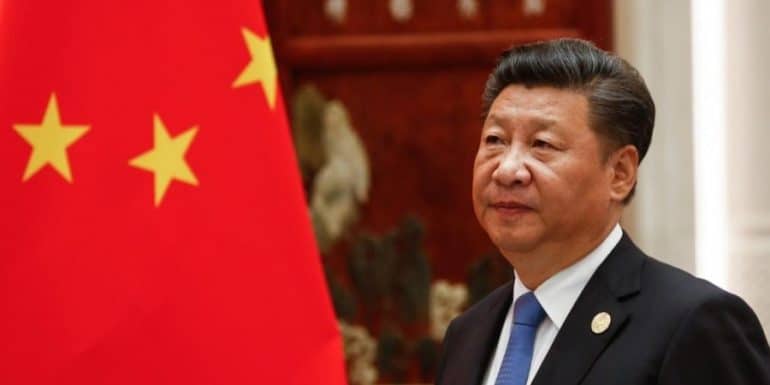When Xi Jinping took power in late 2012, some observers expected him to become the most progressive communist leader in China's history, based on his unobtrusive profile and family background.
Ten years later, these predictions turned out to be wrong, which if nothing else attests to how much the 69-year-old politician who today secured a new term, the third consecutive one—something unprecedented—was overlooked at the time as head of state.
Described as China's most powerful leader since the founder of the People's Republic, Mao Zedong, he has carefully, patiently, consolidated his power, silencing all dissent, while his will to have absolute control in his hands is now evident in many and various socioeconomic issues.
Forced residence in the countryside, contact with harsh rural life, slow rise through the Party ranks, hard work: his path is endlessly praised in the official historiography of the Chinese Communist Party (CCP).
"I would challenge the general assumption that Xi Jinping's struggle for power was an end in itself," Alfred L. Chan, author of a book on the Chinese leader's life, told AFP.
"I would say that he sought to obtain power (to use it) as a tool (…) to realize his vision" for his country, he underlined.
Another biographer of his, Adrian Giages, points out that he does not believe that Xi Jinping was motivated by personal enrichment. "He really has a vision for China. What he wants is for China to become the most powerful country in the world," he explains.
"You mature faster"
At the heart of his vision is the Communist Party and what Xi Jinping calls the "Chinese dream" or "great renaissance of the Chinese nation," victim of a century and a half of foreign invasions and devastating internal political conflicts.
His childhood in no way predisposed him to rise to the top of the CCP apparatus.
His father, Xi Zhongxun, a hero of the Revolution who later became Vice Premier, was targeted by Mao Zedong in the Cultural Revolution (1966-1976).
"Xi Jinping and his family were traumatized," according to Mr. Chan.
The teenager even then lost his privileged status overnight, while his half-sister committed suicide due to family persecution. He has revealed that he was ostracized by his classmates.
At just 15 years old, Xi Jinping, like many of his urban peers, was sent to the countryside, where he was assigned hard farm work and given a hut dug into a hillside for the night. "I was shocked by how intensive the work was," he would later admit.
He would tell the American newspaper Washington Post in 1992 that in public events of criticism he was forced to renounce his father, during the Cultural Revolution.
"Even if you don't understand (what's going on), you're forced to understand. All this makes you mature much faster," he would confide.
The soprano
For his biographer Alfred Chan, the harsh experiences of his youth provided Xi Jinping with mental "fortitude".
Today, the cave where he slept as a teenager in the countryside has been turned into a tourist attraction. It is also used for propaganda purposes to emphasize how much he cares for the poorest Chinese.
When an AFP reporter visited the site years ago, a local resident conjured up an almost epic image of Xi Jinping, endlessly reading books while taking a break from farm work.
Before he was finally approved, his application to join the CCP was repeatedly rejected. The reason, of course, was his father's legacy.
After becoming the secretary of a local CCP village organization in 1974, Xi Jinping, starting from the very bottom, gradually began to climb the ranks. He became the head of the party organization in Fujian in 1999, Zhejiang in 2002, Shanghai—China's financial capital—in 2007.
His father was reinstated in the late 1970s after the death of Mao Zedong, which no doubt facilitated the rise of the current head of state.
After divorcing his first wife, he married soprano Peng Liwan in 1987, when she was still much more famous than him.
"big shock"
Cai Xia, a former official of the CCP, now a political exile in the USA, estimates that Mr. Xi "suffers from inferiority syndrome", as he "knows very well that he is not particularly educated compared to other leading figures" of the party.
Xi Jinping has always considered himself the "heir of the revolution", says Mr Chan to the contrary.
In 2007, he was named a member of the standing committee of the Politburo — the party's most important decision-making body.
When he replaced China's former president Hu Jintao five years later, he had no idea of the policies that would follow: reducing freedom of speech and the media's margins of maneuver, shrinking academic freedom in universities, cracking down on the opposition in Hong Kong...
With his patriotic, sometimes nationalistic speech, Xi Jinping promotes the narrative of a China on the rise, claiming its rightful place in the international community, to secure greater popular support.
"The fall of the Soviet Union and socialism in Eastern Europe was a big shock" to the Chinese president, says Mr. Gaiges, who Mr. Xi attributes the collapse to the policy of opening up.
He "decided that this should not be done in China" under any circumstances; this is why he wants "strong leadership in the Communist Party" and "a strong leader."
Source: RES-EAP
